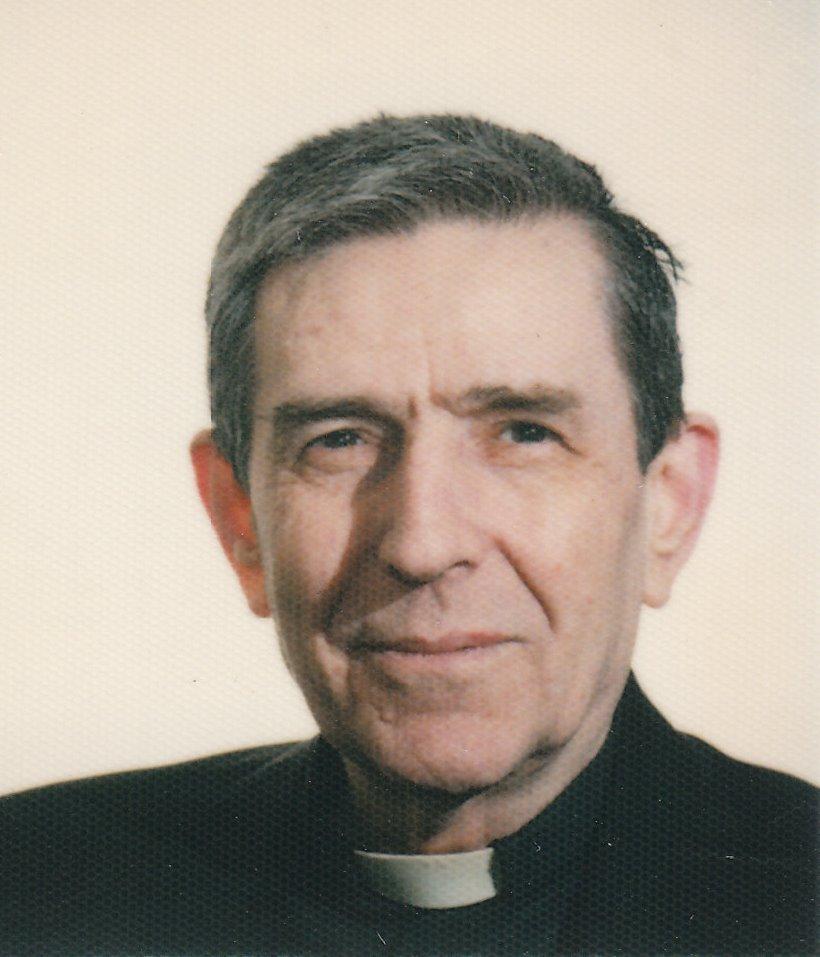Daniel Comboni
Misjonarze Kombonianie
Obszar instytucjonalny
Inne linki
Newsletter
In Pace Christi
Tonelli Carlo
Fr. Carlo Tonelli was one of the few Comboni Missionaries who never went to the missions. But this did not prevent him from living with great intensity his missionary life in the various services the Italian Province asked of him.
He took his first vows at the conclusion of his novitiate in Florence, at the end of the war, on 15 August 1945. From there he went to Rebbio (1945-1947) and Verona (1947-1948) for his scholasticate years, then to Arco for a few months because of his poor health and then to Venegono (1949-1952) for his theological studies. He was ordained in Milan on 7 June 1952 by cardinal Ildefonso Schuster.
From 1952 to 1960 he was at Sulmona as teacher and local treasurer of that minor seminary. There, his personal calvary began. One winter he was sent to Antrodoco, in the Abruzzi region, for Christmas ministry. He ended up in a damp and extremely cold rectory, without heat and with just an old and thin blanket. When he returned home he realized that his legs had suffered from something like frostbite and that his blood circulation was for ever affected. From then on, throughout his entire life, he had to put up with chronic sores, daily bandages and medications on his legs and the wearing of elastic socks. All this never interfered with his work, heavy at times, that he performed with great dedication and energy.
From 1960 to 1970 he was in Brescia, always as bursar and teacher. He was also involved in pastoral ministry at the shrine of the Sacred Heart (now the diocesan parish of the Good Shepherd), that was attached to the seminary. He was above all a confessor at the shrine, in parishes of Brescia and of many small towns.
From 1971 to 1990 he was in Verona, at the Mother House, working in administration, especially dealing with the various building projects of the Italian Province. He was not only a manager, but also a labourer handling pick and shovel. He is remembered as the labourer who, dressed in his black overall, would climb scaffoldings with hammer and chisel, unmindful of the cold or the heat. But he is also remembered as the one who was often seen in his office pouring over drawings, measuring and checking, to make sure that everything was right. He was incredibly precise.
From 1990 to 1996 he was assigned to the parish of St. Tomio in downtown Verona, totally dedicated to hearing confessions. There he fell ill with the disease that gradually robbed him of his memory. He had to be moved to the “Ambrosoli Centre” of Milan, where he eventually died.
Fr. Carlo had four loves:
1. Love for his vocation. He nourished it by prayer and vigilance. Every month he visited his confessor and spiritual director. When he could no longer go by himself, he asked a confrere to take him. No matter how busy he was, he never omitted his spiritual duties.
2. Love for the Institute. He did not mind the sacrifices that were required from him. This caused him to be continually transferred in order to follow the building projects going on in the various houses in Italy. When something was not going right, even in the missions, he felt it personally.
3. Love of poverty. At times he came through even as being stingy. “The money comes from the poor and belongs to the poor, we can’t waste it”, he used to say. In order to save money as much as possible, he studied the projects personally and had reached a good level of competence in the fields of building, plumbing and electrical drawings. “When he arrived in Milan, recalls Bro. Alessandro Pelucchi, he had nothing with him, like St. Francis”.
4. Love for his priesthood. He lived it in an intense manner, especially as confessor and minister of God’s mercy. His penitents still ask about him. Fr. Carlo lived his priesthood under the shadow of the cross, as a true follower of Christ without complaining, patiently and silently, like a willing victim, even when suffering from incomprehension. After the funeral in Milan, he was taken to the cemetery in his home town where he rests next to his family members.

